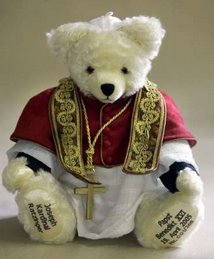IN his recent Acton Lecture, The Australian's Paul Kelly pointed out that God was making a comeback across the world, so that 70 per cent of the world's population will be Christian, Muslim or Hindu in 2025. In 1900 they were 50 per cent of a much smaller population.
...
In Kevin Rudd's earlier outspoken article in the October issue of The Monthly, "Faith in Politics", he obviously also felt that God was doing well in Australia, at least for the moment. He praised St Thomas More and especially the Protestant pastor and theologian Dietrich Bonhoeffer, killed by the Nazis, as an example of muscular Christianity, urging that the church should be in the middle of the village, not on the boundaries where human powers give out.
There is a certain tension in Rudd's approach because Bonhoeffer and More, executed by Henry VIII, are martyrs and it is difficult to be more marginalised than that, but he argues cogently against the political orchestration of various forms of organised Christianity in support of "the conservative incumbency".
The Opposition Leader obviously felt that his religiously framed attack on a host of Coalition policies would enhance the electoral fortunes of the Australian Labor Party and his own campaign for the leadership. He has been proved right on the second of these two issues.
...
Politicians and church leaders come to the problems of church and state, of religion and politics, from different perspectives. While politicians have an undoubted concern for the common good, their immediate goal is to present their arguments in a way that enables them to win power for their political party. On the other hand, religious leaders can afford a more objective approach, examining each issue from the perspective of traditional belief and the wellbeing of the community.
...
Political opinions vary among clergy and laity, and my own preference is for Christians to belong to the various parties rather than the churches having all their eggs in one basket. Like Rudd, I do not see the Christian churches as the political handmaiden of the conservative political establishment but neither do I see church leaders as handmaidens or regular spokesmen for the Opposition. Bishops and moderators have the right, and sometimes the duty, to speak out on public moral issues, to praise as well as blame any of the agencies in public life. Generally the instinct should be for co-operation, not confrontation, recognising that a strident advocacy for the marginalised, vulnerable and oppressed is often easier than helping them.
Moving from these personal perspectives, I welcome Rudd's religious concerns without necessarily sharing his conclusions. He does not challenge the separation of church and state in any way and effectively rebukes those secularists who wish to exclude Christian considerations from public discussion.
However, it remains to be seen how widely the ALP will avoid following the pattern of the Democrats in the US where, until the recent elections, Christians were not wanted as candidates.
Preselection of Labor candidates is not in the hands of the parliamentary leader. It is performed by local party members and-or elected bodies where secular influences are much stronger than in the general community. The influence of Emily's List in the selection of pro-abortion female candidates for the Labor Party is well known.
If the party were to follow nationally the old-fashioned views of John Cain, Joan Kirner and The Age editorialists in Victoria rejecting pro-life and pro-family policies, the ALP would be in permanent Opposition. Times have changed and many are troubled by the consequences of the revolutions of the 1960s.
God is making a comeback across the world and will continue to do better in Australia than many secular commentators allow. The moral challenges of war, biotechnology, refugees and social justice will not disappear. But there is no immediate prospect of a Christian Right here with the influence of the moral majority in the US, and economic considerations will continue to outweigh godly claims, the protests of the secularists and the dwindling number of atheists.
...
I guess we shall have to wait on the consequences of this piece. My guess is that a number in the ALP won't be happy.


No comments:
Post a Comment